About IAOEES
Board Committee Members - Electrochemical Nanomaterials
The board committee members listed below are in order of time joining the IAOEES
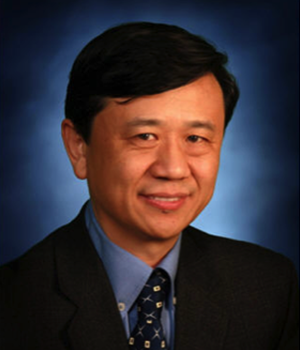 |
Dr. Andy (Xueliang) Sun
University of Western Ontario, Canada
Dr. Andy (Xueliang) Sun is a Professor and Canada Research Chair (Tier I) for the development of nanomaterials for clean
energy, at the University of Western Ontario, Canada. He was elected as a Fellow (Member) of the Canadian Academy of
Engineering (加拿大工程院院士) in 2016. Dr. Sun received his Ph.D degree in Materials Chemistry at the University of
Manchester, UK, in 1999. Then, he worked as a post-doctoral fellow in the University of British Columbia, Canada,
during 1999-2001. He was a Research Associate at the National Institut de la Recherche Scientifique (INRS), Quebec,
Canada, during 2001-2004.
Dr. Sun’s research is focused on advanced nanostructured materials for energy conversion and storage including fuel cells and Li batteries. Dr. Sun is an author and co-author of over 260 refereed-journals (e.g. Nature Communications, Advanced Materials, J. Am. Chem. Soc., Angew. Chem., Adv. Fun. Mat., Energy & Environmental Science) with citations of over 10000 times. He edited two books and published 15 book chapters as well as filed eleven US patents. He has given more than 100 plenary/keynote/invited talks in international conferences, symposia and workshops. Dr. Sun is actively collaborating with industries and government labs such as Ballard Power Systems, General Motors, Lithium Phostech Inc., and Canadian National Defense. He also serves as an Associate Editor for Frontier of Energy Storage (2013-present). Dr. Sun received various awards such as Early Researcher Award (2006), Canada Research Chair (2007) and University Faculty Scholar Award (2010) and Western Engineering Prize for Achievement in Research (2013). Dr. Sun is a Vice-Chairman of our Board Committee in the International Academy of Electrochemical Energy Science (IAOEES). |
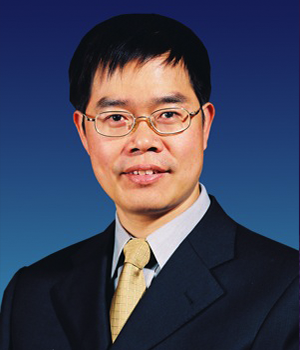 |
Dr. Hui-Ming Cheng
Chinese Academy of Sciences, China
Dr. Hui-Ming Cheng is a Professor and Director at the Advanced Carbon Materials Division of Shenyang National Laboratory for Materials Science, Institute of Metal Research, Chinese Academy of Sciences. He is a member of Chinese Academy of Sciences (中国科学院院士). He graduated from Hunan University in 1984, and received his Master and Ph. D degree in 1987 and 1992 from the Institute of Metal Research, Chinese Academy of Sciences.
He worked at Kyushu National Industrial Research Institute, AIST, and Nagasaki University in Japan from 1990 to 1993, and MIT, USA from 1997 to 1998. Dr. Cheng is mainly working on carbon nanotubes, graphene, energy storage materials, photocatalytic semiconducting materials, and high-performance bulk carbon materials. He edited the first book on carbon nanotubes in Chinese, published over 400 peer-reviewed papers on Nature, Nature Mater., Nature Commun., PNAS, Adv. Mater., JACS, Angew. Chemie, Adv. Funct. Mater., Adv. Energy Mater., ACS Nano, J. Mater. Chem., Carbon, etc, with >21,000 citations. He has received several international and national awards, including National Natural Science Award (2nd class) in 2006, the Charles E. Pettinos Award (American Carbon Society, USA) in 2010, and the Prize for Scientific and Technological Progress of Ho Leung Ho Lee Foundation in 2010. He is the Editor of Carbon since 2000 and the Editor-in-Chief of New Carbon Materials since 1998. Prof. Cheng was the Co-Chairman of the World Conference on Carbon in 2002 (Beijing) and 2011 (Shanghai), and he has given more than 70 plenary/keynote/invited talks in international conferences and symposia. Dr. Cheng was a recipient of TCT Fellowship at Nanyang Technological Univ. in 2002, is honorary professor of the University of Queensland, Australia, and guest professor of a few Chinese universities. |
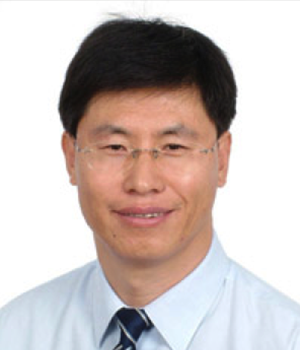 |
Dr. Zhongfan Liu
Peking University, China
Prof. Zhongfan Liu graduated from Changchun Institute of Technology in 1983 and got his PhD in physical chemistry in University of Tokyo in 1990. After postdoctoral study in University of Tokyo and Institute for Molecular Science (IMS), he joined the College of Chemistry at Peking University in 1993 as associate professor and promoted to full professor in the same year. He became the Changjiang Scholar in 1999 and a member of Chinese Academy of Sciences (中国科学院院士) in 2011.
Currently, he is the director of Institute of Physical Chemistry, the director of Center for Nanoscale Science and Technology at Peking University. Prof. Liu serves as the editorial or advisory board members of several journals, including Adv. Mater., Small, Chemistry_ An Asian J., Nano Research, NPG Asia Mater., J. Photochemistry and Photobiology C. Photochemistry Review, etc. His research interest is the sp2 nanocarbon materials including single-walled carbon nanotubes (SWNTs) and graphene targeting next-generation electronic devices. His work covers the controlled CVD growth, chemical modification for band structure engineering, and device fabrication techniques of SWNTs and graphene. He has published over 340 peer-reviewed papers in Nature, Nature Mater., Nature Comm., Nature Chem., JACS, etc. The main academic awards he received include Ariyama Kanetaka Memorial Prize (1992), Outstanding Young Scientist Award (Hong Kong Qiushi Foundation, 1997), Chinese Analysis and Instruments Association (CAIA) 1st level award (2005), Chinese University`s Science and Technology Awards-Natural Science 1st level Award (MOE, 2007), National Award for Natural Science 2nd level Award (2008), and CCS-AkzoNobel prize (2012), etc. |
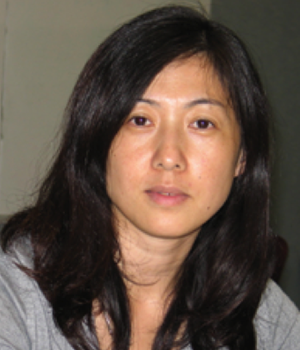 |
Prof. Lei Zhang
National Research Council, Canada
Prof. Lei Zhang is a Senior Research Council Officer at National Research Council Canada (NRC),
a Fellow of the Royal Society of Chemistry (FRSC), an adjunct Professor of Federal University of Maranhao,
Zhengzhou University and Shanghai University, and a vice president of International Academy of
Electrochemical Energy Science (IAOEES). Prof. Zhang received her Bachelor’s degree in Materials Science
and Engineering (1990) from Wuhan University of Technology (China), first Master’s degree in Materials
Chemistry (1993) from Wuhan University (China) and her second Master’s degree in Physical Chemistry (2000)
from Simon Fraser University (Canada).
Following her second Master’s degree, Prof. Zhang was appointed as a principle investigator at Molecular Membrane Technologies Inc., Vancouver (2001-2004). In 2004, Prof. Zhang joined NRC to help initiate the PEM Fuel Cell program. As a key technical player, she helped NRC develop novel PEM Fuel Cell catalysts and testing capabilities. She has furthered fundamental understanding of PEM Fuel Cells. Prof. Zhang has also carried out R&D of other electrochemical energy technologies, such as supercapacitors, metal-air batteries, and hybrid batteries. With more than 170 publications (> 9,500 citations), including over 75 referred journal papers, 2 edited books, 4 book chapters, 3 patents, over 30 oral research presentations and 50 technical reports, Prof. Zhang’s research and scientific contributions in the areas of electrochemical energy storage and conversion have been internationally recognized. Prof. Zhang was an invited guest lecturer in University of British Columbia (UBC) and a reviewer for various proposals and refereed journal papers. She is also the member of the NSERC Industrial R&D Fellowships College of Reviewers in Canada, and the Editorial Board Member of Electrochemical Energy Reviews (EER), Springer Nature. |
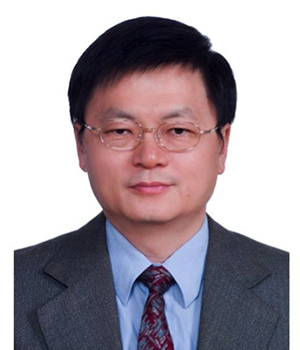 |
Dr. Ru-Shi Liu
National Taiwan University, Taiwan
Dr. Ru-Shi Liu is currently a professor at the Department of Chemistry, National Taiwan University. He received his Bachelor’s degree in Chemistry from Shoochow University (Taiwan) in 1981. He received his Master’s degree in nuclear science from the National Tsing Hua University (Taiwan) in 1983. He obtained two Ph.D. degrees in chemistry – one from National Tsing Hua University in 1990 and one from the University of Cambridge in 1992.
He worked at Materials Research Laboratories at the Industrial Technology Research Institute from 1983 to 1985. He was an Associate Professor at the Department of Chemistry of National Taiwan University from 1995 to 1999, when he was promoted to a professorship in 1999. His research concerns the field of Materials Chemistry. He is the author or coauthor of more than 450 publications in scientific international journals with a total number of more than 7000 citations. He has also been granted more than 80 patents. |
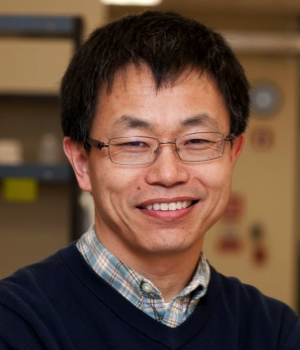 |
Dr. Yushan Yan
University of Delaware, United States
Dr. Yushan Yan joined the University of Delaware as Distinguished Engineering Professor in 2011 after serving on the faculty of the University of California at Riverside (UCR) for 13 years. He received his B.S. in Chemical Physics from the University of Science and Technology of China in 1988, and Ph.D. in Chemical Engineering from the California Institute of Technology in 1997. He studied heterogeneous catalysis at the Dalian Institute of Chemical Physics of the Chinese Academy of Sciences from 1988 to 1992.
After his PhD, he worked for AlliedSignal Inc. as Senior Staff Engineer and Project Leader for two years and then began his academic career at UCR as Assistant Professor in 1998. He was promoted to Associate Professor in 2002 and Professor in 2005. He was appointed Department Chair in 2008. He was honored as one of the 5 inaugural University Scholars at UCR in 2006. In 2010, he was given the title of University of California Presidential Chair. He is a Fellow of the American Association for the Advancement of Science. He was recognized by the International Zeolite Association with the Donald Breck Award in 2010 for his zeolite thin film research. He was one of 37 awardees in the US Department of Energy’s ARPA-E OPEN 2009 (1st open call for proposals) for his hydroxide exchange membrane fuel cell technology and one of 66 awardees in OPEN 2012 (2nd open call for proposals) for his redox flow battery concept. He has been an inventor on a number of issued or pending patents, some of which were licensed to form startup companies (NanoH2O, Full Cycle Energy, Zeolite Solution Materials, and OH-Energy). He has published 156 journal articles that are widely cited in the scientific community (h-index = 51, +8,000 citations) and his research has been extensively covered by the media. |
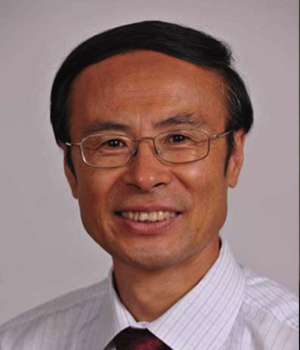 |
Dr. Lijun Wan
Chinese Academy of Sciences, China
Dr. Lijun Wan is a Research Professor of the Institute of Chemistry of Chinese Academy of Sciences (CAS). Dr. Wan obtained his B.Sc. degree in 1982 from Dalian University of Science and Technology. In 1996, he received his PhD degree in Northeast University of Japan. After that, He worked as the researcher of Japan Science and Technology Agency, the associated professor and visiting professor of Northeast University and Hokkaido University of Japan, respectively.
In 1998, Dr. Wan returned to the Institute of Chemistry of CAS as the "Hundred Talents Project" of CAS. From 2004 to 2012, he served as the Director of Institute of Chemistry of CAS. In Nov. 2012, he was elected as the Alternate member of the eighteenth CPC Central Committee. In Nov. 2009, he was elected as the Academician of Chinese Academy of Science (中科院院士). In Oct. 2010, he was elected as the academician of TWAS. Dr. Wan currently serves as the Director of the Center of Molecular Science of CAS, Director of the Key Laboratory of nano-structure and nano-technology of CAS, and Director of State Key Laboratory of Beijing Molecular Science. Dr. Wan has long engaged in STM, electrochemistry and surface science cross-disciplinary research. He combined the experiment, instrumental transformation and theoretical research and developed the research on electrochemical reaction, molecular self-assembly and regulation. Prof. Wan proposed the regulation of surfacial molecule absorption and assembly based on different interactions, and applied them on the research of surfacial nano-patterns, molecular self-assembly structure transformation and molecular/atomic migration. Meanwhile, Prof. Wan explored the cross-disciplinary research area of electro-chemistry and nano-science, and dedicated to the application research of nano-materials in energy and environmental protection. Dr. Wan has published more than 260 research papers in journals like Acc. Chem. Res., PNAS, Angew. Chem. Int. Ed., JACS, etc. as well as a monograph of "Electrochemical scanning tunneling microscopy and application". He was awarded the Outstanding Youth Scholar Funding of NSFC and served as the editor board member of Acc. Chem. Res., JACS, Adv. Mater., Chem. Mater., Chem. Commun., PCP and etc. He was awarded the TWAS Prize in Chemistry, the 2nd Prize of National Natural Science Award, Beijing 1st Prize of Science and Technology, 1st Prize of Science and Technology of Chinese Analysis Association and CCS-BASF Youth Innovation Award and etc. He was also awarded the Labor Medal of the central state organs as well as National Advanced Worker. He was elected as the Fellow of RSC, vice chairman of CCS, Director of CES, representatives of Pacific Rim International Chemical Congress and organizing committee of SPM series of international conferences. |
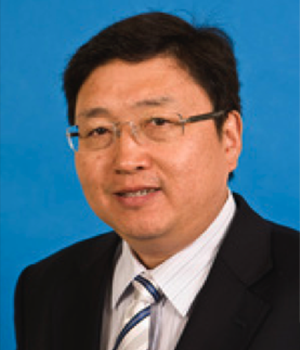 |
Dr. Shizhang Qiao
University of Adelaide, Australia
Dr. Shizhang Qiao joined the School of Chemical Engineering of the University of Adelaide (UoA) in March 2012 as a professor (the inaugural Chair of Nanotechnology). His research expertise is in nanomaterials and nanoporous materials for bioseparation, drug/gene/RNA delivery and new energy technologies. He has co-authored more than 185 papers in refereed journals, including Nature, Nature Communications, Angew Chem Int Ed, J. Am. Chem. Soc, Advanced Materials with him as a corresponding or joint corresponding author (over 7000 citation times, h-index: 44). He has filed three patents on novel nanomaterials...
and attracted more than 6.5 million dollars in research grants from industrial partners and Australian Research Concile (ARC). In recognition of his achievements in research, he was honoured with a prestigious ARC Discovery Outstanding Researcher Award (DORA, 2013), a Emerging Researcher Award (2013, ENFL Division of the American Chemical Society) and a UQ Foundation Research Excellence Award (2008). He has also been awarded an ARC ARF Fellowship (relinquished), an ARC APD Fellowship and an inaugural UQ Mid-Career Research Fellowship. Dr Qiao is currently an Honorary Professor at The University of Queensland and is appointed to ARC College of Experts, an Associate Editor of Journal of Materials Chemistry A, and A member of Editorial Board of ChemBioEng Review (Wiley). |
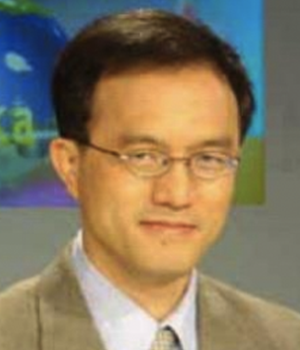 |
Dr. Kuei-Hsien Chen
National Taiwan University, Taiwan
Dr. Kuei-Hsien Chen is a Research Fellow and Deputy Director of Institute of Atomic and Molecular Sciences, Academia Sinica, he is also an Adjunct Research Fellow, Center for Condensed Matter Sciences, National Taiwan University. Dr. Chen obtained his B.S. of Electrical Engineering from National Taiwan University in 1981, his M.S. of Applied Physics from Columbia University in 1984, and his Ph.D. of Applied Science from Harvard University in 1989, respectively...
Dr. Chen has achieved many awards including Ho Chin Tui Outstanding Honorary Award in Materials Science (2012); Oustanding Scholar Awards of the Foundation for the Advancement of Outstanding Scholarship (2008-2013); First Prize in Science as Art Contest, MRS-2008, Boston (2008); First Prize Award in the Art Contest of the Annual Meeting of American Vacuum Society, Seattle (2007); Outstanding Research Award, National Science Council, Taiwan (2005); Outstanding Publication Award, IAMS, Academia Sinica (2004); Young Scholar Research Award, Academia Sinica (2000); Chemistry Lectureship, Damkang University (1999); and National Science Council Research Award (1994-2000). Dr. Chen serves as the editorial member/reviewer for many journals including Advanced Materials, Nanoletters, Nanoscale, Chem. Phys. Lett., J. Appl. Phys., Appl. Phys. Lett., Materials Chem. & Phys., and Applied Phys. Dr. Chen has published 355 Referred papers, 76 International conference Invited/Keynote/Plenary talks, 7 Book Chapters, 12 patents, with WOS h-index of 45. |
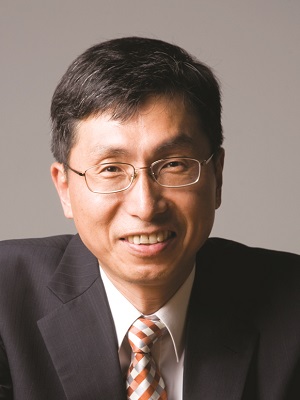 |
Dr. Yung-Eun Sung
Seoul National University, Korea
Dr. Yung-Eun Sung is a Professor in School of Chemical & Biological Engineering at Seoul National University, Korea. Dr. Sung is also a group leader in the Center for Nanoparticle Research at Institute of Basic Science, Chair of the Korea Section in the Electrochemical Society, and Vice-President of Korean Electrochemical Society. Dr. Sung obtained his B.S and M.S.Eng in Chemical Technology from Seoul National University in 1986 and 1988, M.A in Chemistry from Columbia University in 1992,..
and Ph.D in Chemistry from University of Illinois at Urbana-Champaign (USA) in 1996, respectively. In 1996-1998, Dr. Sung did his postdoctoral research at the University of Texas at Austin, and was appointed as an Assistant Professor and then Associate Professor at Gwangju Institute of Science & Technology (Korea) during 1998 to 2004. In 2004, he joined Seoul National University as a Professor and also was appointed as director of center for Materials of Advanced batteries. Dr. Sung’s major expertise is electrochemical energy materials. Dr. Sung has published more than 250 technical papers in the area of electrochemical technology and energy conversion. His research has focused on electrochemistry, photoelectrochemistry and nanotechnology in the area of fuel cells, battery, and other energy conversion and storage. Now Dr. Sung serves as an Associate Editor for Elsevier Journal: Applied Catalysis B: Environmental. |
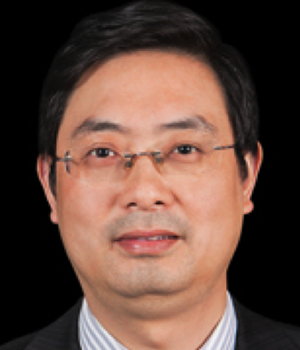 |
Dr. Guoxiu Wang
University of Technology, Sydney, Australia
Dr. Guoxiu Wang is a Professor in School of Chemistry and Forensic Science and also the Director of the Centre for Clean Energy Technology at University of Technology (Sydney, Australia). Dr. Wang obtained his Ph.D from the University of Wollongong, Australia, in 2001. During 2006 – 2009, he was a Senior Lecturer and then an Associate Professor in School of Mechanical, Materials and Mechatronic Engineering at University of Wollongong (UOW). During 2007–2011, He was the Queen Elizabeth II Fellow, UOW and UTS, and starting from 2012,..
he was promoted be the Professional Future Fellow (FT3) of Australian Research Council (ARC). Dr. Wang’s expertise areas including (1) Lithium ion batteries, lithium-air batteries and battery technology; (2) Supercapacitors; (3) Catalyst materials for PEM Fuel-cells; (4) Hydrogen storage materials; (5) Semiconductor quantum dots, quantum wires and quantum tubes; (6) Molecular chemical and bio nanosensors; and (7) Graphene and chemical functionalisation of grapheme. Dr. Wang has published over 260 refereed journal papers with an H-index of 49. Most of them were published in high impact journals, which have attracted over 7700 citations. Dr. Wang has organized many international conferences and also given many keynote speeches. |
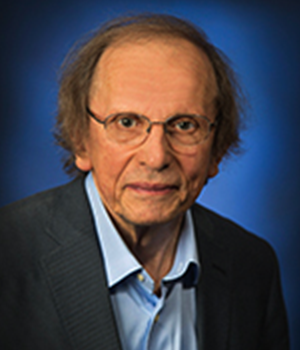 |
Dr. Radoslav Adzic
Brookhaven National Laboratory, United States
Dr. Radoslav Adzic is a Senior Chemist and Group Leader of Electrochemical Group at the US Department of Energy’s (DoE) Brookhaven National Laboratory in Upton, New York., the Fellow of the Electrochemical Society (ECS), the Fellow of International Society of Electrochemistry (ISE), and the correspondent member of the Serbian Academy of Sciences and Arts, as well as an Adjunct Professor at Stony Brook University. Dr. Adzic earned his B.S in chemical technology and his doctorate in chemistry at the University of Belgrade,..
where he eventually became a professor and director of the Institute of Electrochemistry. He joined Brookhaven in 1992 as a senior research associate, was named a chemist in 2001 and senior chemist in 2005. Dr. Adzic's recent work has focused on fuel-cell electrocatalysis, making efficient catalysts that can convert hydrogen to electricity in fuel cells for electric vehicles. He designed the first platinum monolayer fuel-cell anode electrocatalyst -- ruthenium nanoparticles with a submonolayer of platinum -- which has the potential to make fuel cells used in electric vehicles less costly and more efficient. Dr. Adzic has published more than 270 scientific papers in high-impacting international journals (Nature, Science, mature Materials, JACS, etc.) with more than 11, 000 times of citation (h-index: 57). His awards include: the Annual Award of Belgrade for Natural Sciences in 1983, the Medal of the Serbian Chemical Society in 1997, and Brookhaven Lab's Science and Technology Award in 2005.Science and Technology Award, Brookhaven National Laboratory, 2005, Energy Technology Award, The Electrochemical Society, 2006, Department of Energy Hydrogen Program Research and Development Award 2008, Inventor of the Year, Battelle Memorial Institute, 2010. |
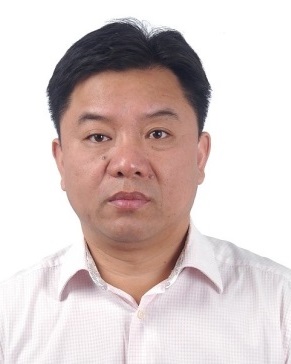 |
Dr. Wenbin Hu
Tianjin University, China
Dr. Wenbin Hu is a Professor and Dean of the School of Materials Science and Engineering at Tianjin University. Dr. Hu graduated from Central-South University with a B.Sc in 1988, and received M.Sc from Tianjin University in 1991. He obtained his Ph.D. from Central-South University in 1994. Dr. Hu is a Member of the Expert Group of Advanced Structural and Composite Materials in the new materials field of China’s 863 Program (National High-Tech Research and Development Program). He received the support from the National Science Foundation for Distinguished Young Scholars of China in 2011. He has carried out a total of 16 projects by Chinese Government including the Ministry of Science and Technology and National Natural Science Foundation of China.
Dr. Hu has published over 110 scientific papers (SCI indexed), and he has hold 26 granted Chinese patents. Dr. Hu has won several important awards including the First Rank of Advanced Science and Technology of China in 2009, the First Rank of Advanced Science and Technology of Chinese Universities in 2007, the First Rank of Advanced Science and Technology of Shanghai City in 2007, and the First Rank of Innovation Professionals of General Motors-Chinese Universities in 2009. Dr. Hu’s research interests with focus on design, synthesis and characterization of advanced micro/nanomaterials for energy storage and conversion applications. |
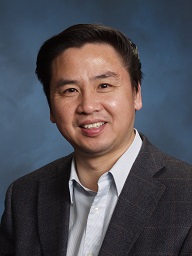 |
Dr. Liming Dai
Case Western Reserve University (CWRU), USA
Dr. Liming Dai joined Case Western Reserve University (CWRU) in fall 2009 as the Kent Hale Smith Professor in the Department of Macromolecular Science and Engineering. He is also the Director of the Center of Advanced Science and Engineering for Carbon (CASE4Carbon). Dr. Dai received a BSc degree from Zhejiang University in 1983, and a PhD from the Australian National University in 1991. He accepted a postdoctoral fellowship from the Cavendish Laboratory at the University of Cambridge, and two years later became a visiting follow in Department of Materials Science and Engineering at the University of Illinois at Urbana-Champaign. He spent 10 years with the Commonwealth Scientific and Industrial Research Organization (CSIRO) in Clayton, Australia.
Before joining the CWRU, he was an associate professor of polymer engineering at the University of Akron and the Wright Brothers Institute Endowed Chair Professor of Nanomaterials at the University of Dayton. Dr. Dai’s expertise lies across the synthesis, chemical modification and device fabrication of conjugated polymers and carbon nanomaterials for energy-related and biomedical applications. He has published over 350 scientific papers, a research monograph on intelligent macromolecules, an edited book on carbon nanotechnology, and held about 30 issued/applied patents. His h-index: >70; Citations: >20,000 (Source: ISI Web of Science; Author query: “Dai LM” and “Dai L). He is a Fellow of the Royal Society of Chemistry and Fellow of the American Institute for Medical and Biological Engineering (AIMBE). |
 |
Dr. Mohamed Mohamedi
Institut National de la Recherche Scientifique (INRS), Canada
Dr. Mohamed Mohamedi received his Ph.D. in electrochemistry from the Institut National Polytechnique de Grenoble (INPG), France, in 1995. Then, he worked as a post-doctoral fellow in the University of Trondheim, Norway and thereafter as a JSPS post-doctoral fellow in Tohoku University, Japan during 1995-1997. He afterwards spent seven more years in Japan where he held several positions including a research associate and staff member of the international division of Tohoku University, a Research fellow of the New Industrial Creation Hatchery Center, a research fellow of the New Energy and Industrial Technology Development Organization (NEDO) and a Visiting scholar at the Center of Excellence for Practical Nanochemistry, Waseda University. Dr. Mohamedi is presently a Professor and the head of the Electrochemistry and Micro Energetic Systems Laboratory (EMESL) at Institut National de la Recherche Scientifique, Université d’Avant-garde, Canada.
He develops nanomaterials, nanostructures and micro-/nano energetic systems for electrochemical and biomedical applications including liquid fuel cells, supercapacitors, implantable biofuel cells, implantable bioelectrochemical sensors and new electroanalytical techniques. Dr. Mohamedi has published over 130 research articles and has authored and co-authored over 125 conferences including several as invited or keynote speaker. He is the recipient of the Sakae Tajima Prize from the International Society of Electrochemistry (ISE) and the Electrochemistry Communications Award 2007. He is an Editorial board member for several journals and is an active member of the American Nano Society, the Electrochemical Society, the ISE, the UNESCO CHAIR in Materials and Technology for Energy Conversion, Saving and Storage (MATECSS), the Intercollegiate Sustainable Energy Network (RIED) of Québec, and the Centre Québécois on Functional Materials. |
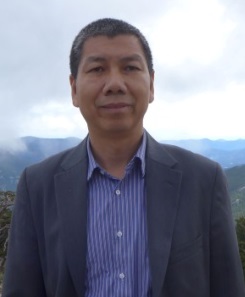 |
Dr. Jun Liu
Pacific Northwest National Laboratory, USA
Dr. Jun Liu is the Director for the Energy Processes and Materials Division and a Laboratory Fellow at Pacific Northwest
National Laboratory, a Fellow of the American Association for the Advancement of Science (AAAS) and a Fellow for the
Materials Research Society (MRS). Jun’s main interest is in synthesis and characterization nanostructured materials and
applications for energy, environments and health. In 2014, Jun was recognized by Thomson Reuters as a top 1% highly cited
researcher for the last 10 years in three fields: engineering, chemistry and materials science.
Jun has more than 350 publications over 55 issued US Patents. Jun has been named a Distinguished Battelle Inventor, PNNL Inventor of the Year, and has twice received BES Awards for Significant Impact on DOE Technologies and twice received the prestigious R&D 100 Awards. |
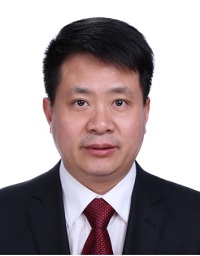 |
Dr. Dr. Liqiang Mai
Wuhan University of Technology, China
Dr. Liqiang Mai is the Chair Professor, Distinguished Young Scholar of the National Science Fund of China, and Executive
Dean of International School of Materials Science and Engineering in Wuhan University of Technology. He received his PHD
in Wuhan University of Technology in 2004. He worked as a postdoctoral researcher in Georgia Institute of Technology with
Prof. ZL Wang from 2006 to 2007, and a research scholar with of Prof. CM Lieber at Harvard University from 2008 to 2011.
Prof. Mai is mainly engaged in research field of nano energy materials and micro/nano devices such as batteries. He has
published over 130 papers tagged by SCI in leading journals such as Nat. Nanotechnol., Nat. Commun., Chem. Rev., PNAS,
Nano Lett., Adv Mater., J. Am. Chem. Soc., Energy Environ. Sci., etc.
His papers have been cited by the world leading scientists such as MS Whittingham, GD Stucky, R Tenne, CNR Rao, etc in Science, Nat. Nanotechnol., Prog. Mater. Sci., Nano Lett., Adv. Mater., etc. He has conducted more than 25 research projects as a Principal investigator/Project Leader, for National Basic Research Program of China, National Natural Science Foundation of China, etc. He received the National Natural Science Fund for Distinguished Young Scholars, Person of the Year (2014) of Scientific Chinese, Hubei Youth Five Four Medal, the First Prize for Hubei Natural Science Award, National Hundred, Thousand, and Ten Thousand Talents Project, Nanoscience Research Leader award, etc. He is the senior editor of Science Letters, editorial board member of Adv. Electronic Mater., Nano Research and Science China Materials. |
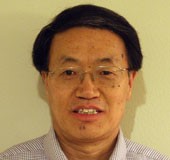 |
Dr. Chongmin Wang
Pacific Northwest National Laboratory (PNNL), USA
Dr. Chongmin Wang is currently a chief scientist at Pacific Northwest National Laboratory (PNNL) located in Richland, Washington, USA.
He received his B.Sc. and M.Sc. in physics from Lanzhou University in China and Ph.D. in Materials Science and Engineering from University of Leeds, UK.
He worked at Max-Planck Institute for Metal Research in Stuttgart in Germany as an Alexander von Humboldt Research Fellow,
National Institute for Materials Science in Japan, and Lehigh University, focusing on atomic level study of grain boundary structure and chemistry using S/TEM.
His research interests include the state of the art S/TEM imaging and spectroscopy and their application to materials characterization, especially in situ and operando S/TEM techniques for energy materials. He is the pioneers on in-situ TEM technique for rechargeable battery research, which has earned him prestigious honors, including the 2016 MRS Innovation in Materials Characterization Award (shared with Frances Ross of IBM T. J. Waterson Research Center and Niels de Jonge of Leibniz Institute for New Materials, Germany); 2017 PNNL Laboratory Director’s Award for Exceptional Scientific Achievement; 2016 Journal of Materials Research (JMR) Paper of the Year Award; 2012 Microscopy Today Innovation Award. He is also the recipient of R&D100 Award, Rowland Snow Award from the American Ceramic Society, Outstanding Invention Award from Japanese Science and Education Committee, PNNL Exceptional Contribution Awards. He has published 370 journal papers and several book chapters with a total citation of 17000 and an H-index of 65 (web of science). He is serving as the principal editor of Journal of Materials Research and is a Fellow of Materials Research Society. |
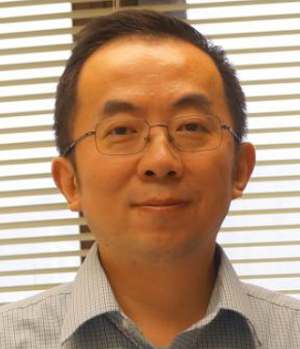 |
Dr. Haitao Huang
The Hong Kong Polytechnic University, Hong Kong
Dr. Haitao Huang is a Professor and Program Leader of postgraduate studies in the Department of Applied Physics, The Hong Kong Polytechnic University. He obtained his Ph.D in Materials Science from Nanyang Technological University, Singapore in 2000. His current research interests include materials for electrochemical energy storage and conversion, and ferroelectric materials for energy applications. He has published over 200 refereed papers in top journals, including Nature Photonics, Joule, Chem, Nature Communications, Energy & Environmental Science, and Advanced Materials, etc. He obtained the Outstanding Achievement Award from the Asia Pacific Society for Materials Research in 2014 and the Science and Technology Award (2nd class) from the Ministry of Land and Resources of the People’s Republic of China in 2017.
He was awarded the Chair Professorship under the “Mingjiang Scholar” scheme in 2016. He has been a Guest Editor for Composites Part A, Journal of Applied Electrochemistry, and Key Engineering Materials. He was the advisory board member of Journal of Materials Chemistry C during 2014-17. He is currently on the editorial board of Scientific Reports, Composites Communications, and Science of Advanced Materials. |
